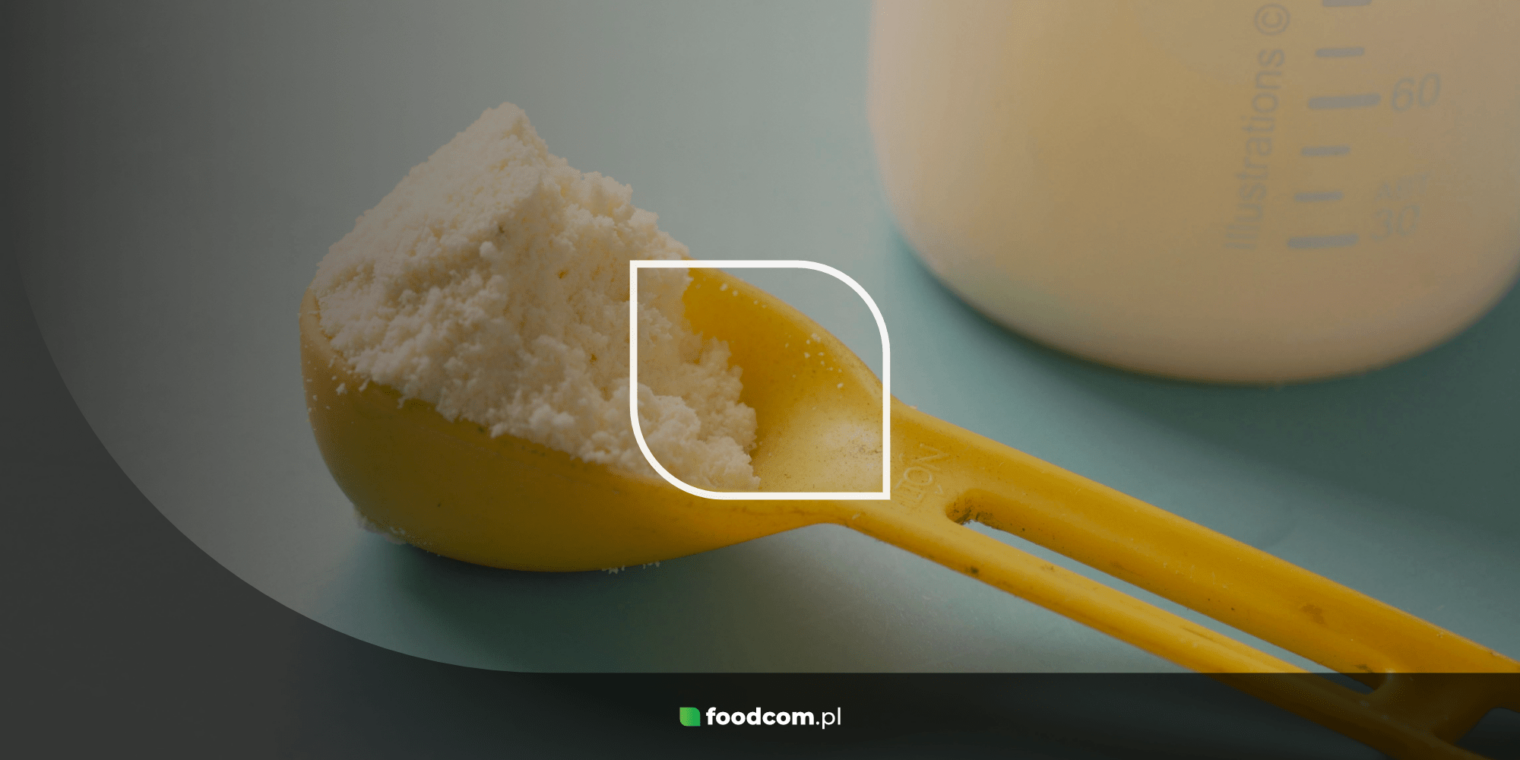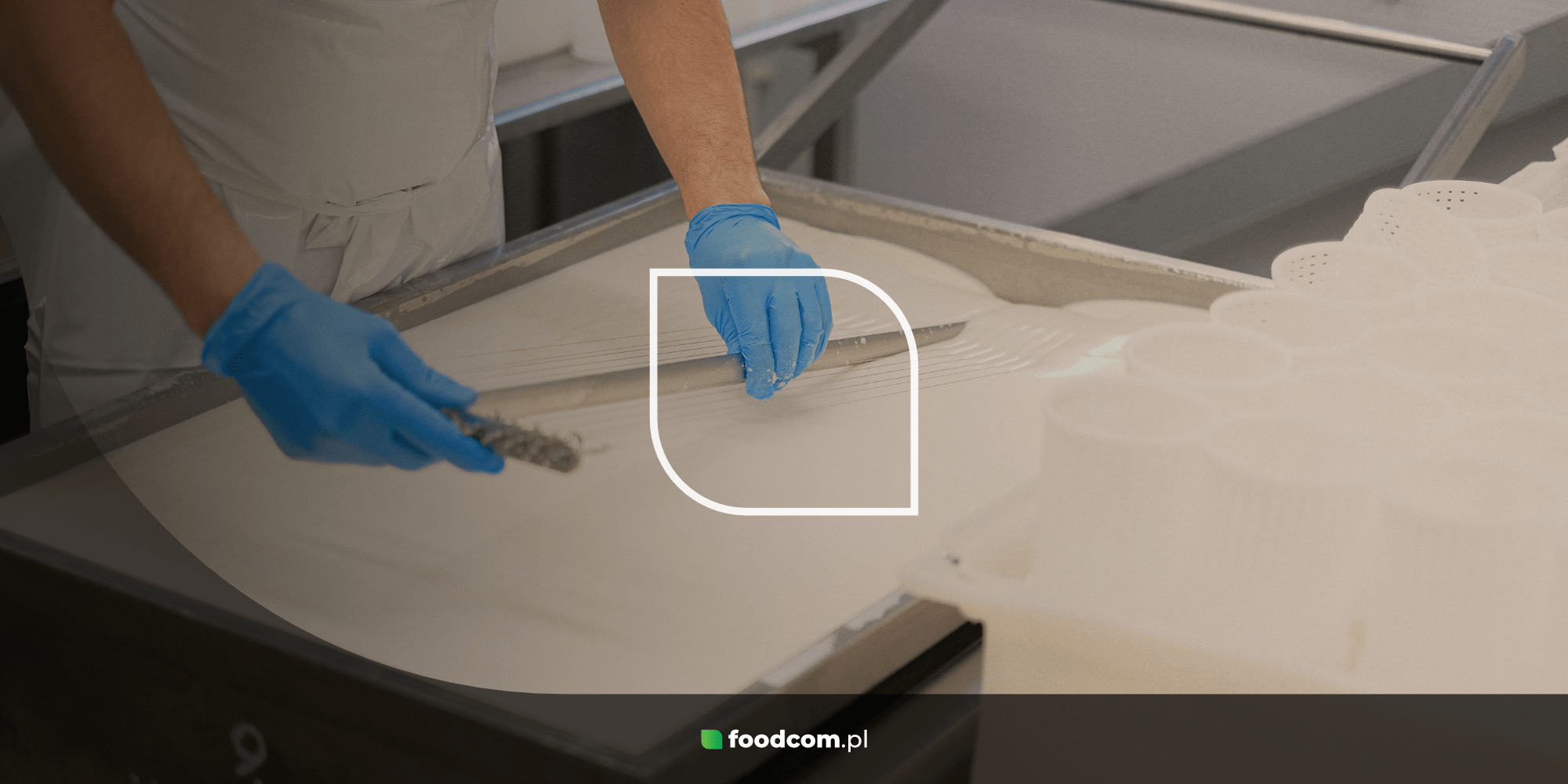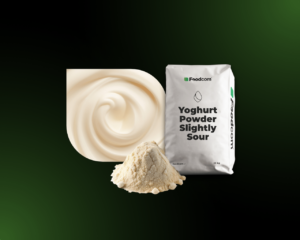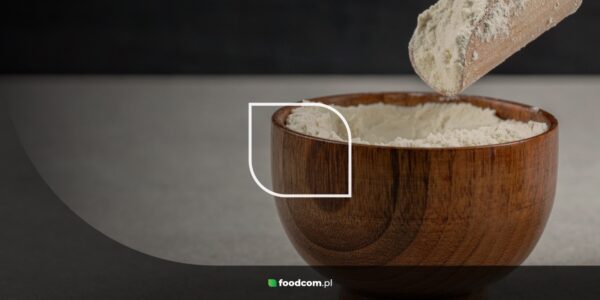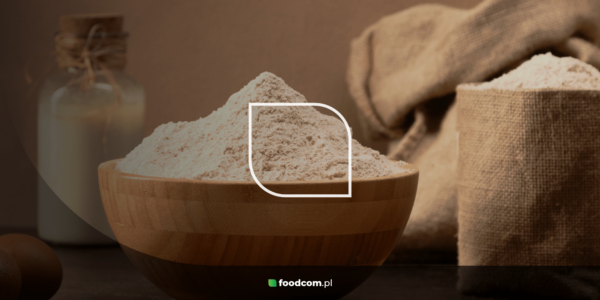- Yogurt powder is a healthier, more versatile alternative to powdered milk.
- It is used in the food, confectionery, cosmetics and catering industries.
- It retains the nutritional value of fresh yogurt, has the same taste, but is more durable.
- It is created by milk fermentation and spray drying, which gives it a free-flowing form.
The dairy industry is gaining more and more interest, especially in the context of health-promoting, dietary and high-protein products. Yoghurt powder is one of the dairy products gaining increasing popularity in the food industry. Thanks to its convenient form and versatile application, it is an ideal solution for food manufacturers and the catering industry. Find out what properties yoghurt powder has, how it is produced and where it is used, as well as which forms it comes in.
Properties of yoghurt powder
Yoghurt powder is a free-flowing powder of white or yellowish colour, without lumps, resembling milk powder. The base of both products is skimmed pasteurised milk, but yoghurt powder has the characteristic sour taste and clean, yoghurt-like aroma typical of yoghurt.
Powdered yoghurt is distinguished by a number of characteristics that determine its growing popularity in the food industry. Its most important advantage is the stability of the product’s physical and chemical parameters. Yoghurt in this form retains the nutritional values which characterise the fresh product – it is rich in protein, calcium and vitamins, which makes it a complete element of our diet. In addition, the powdered product has a long shelf life and does not need to be refrigerated. At the same time, the lighter form of the product facilitates transportation and reduces logistical costs. In addition, due to its versatile properties and more intense taste than powdered milk, yoghurt in this form can be used in many different products.
Depending on the fermentation and drying process used, different variants of yoghurt powder are available, such as slightly sour yoghurt powder and extra sour yoghurt powder, which meet the different culinary requirements of consumers and create unique flavour profiles in the final products.
How is yoghurt powder made?
The production of yoghurt powder involves the fermentation of milk with special bacterial cultures. Thanks to the right strains of micro-organisms, such as Lactobacillus and Streptococcus, a characteristic, slightly acidic yoghurt flavour is created, which also persists in powdered form.
After fermentation, the milk undergoes a water evaporation process, which helps to thicken and concentrate the nutrients in the product. The key stage is spray drying, during which the liquid is dispersed in a stream of hot air, leading to a powder. The result of this process is yoghurt in free-flowing form – a product with a long shelf life, easy to transport and store, and retaining most of the properties of fresh yoghurt.
Use of yoghurt powder
Powdered yoghurt is widely used in the food industry and in the catering industry. Its versatility makes it used in the production of bakery and confectionery products – thanks to its properties, it gives them a delicate taste and aroma and increases their moisture content. It is an ingredient in cakes, muffins, cheesecakes or fillings.
In the ice cream industry, yoghurt powder is an ingredient in yoghurt ice creams and frozen desserts, giving them a creamy texture and characteristic flavour. Yoghurt powder is particularly popular in diet products such as protein shakes and protein bars, where it is gaining popularity due to its high protein and low calorie content.
Yoghurt powder is not only used in confectionery – the product is also an ingredient in bases for sauces, dips, salad dressings, as well as instant soups, which gain a velvety texture and slightly acidic flavour thanks to its content.
Yoghurt powder has applications not only in the food industry, but also in cosmetics. It is an excellent base for the production of yoghurt milk for baths. It is also used in preparations with moisturising, smoothing and nourishing effects, e.g. in masks and creams. Yoghurt has a soothing and rejuvenating effect on the skin, thanks to ingredients such as calcium, zinc, vitamins and lactic acid. Yoghurt also helps to maintain the correct pH of the skin and prevents the growth of unwanted microorganisms.
Yoghurt powder market and manufacturers
The rapid growth of the dairy sector and the increasing demand for functional and convenience foods means that the yoghurt powder market has a bright future. A key factor in its success is the product’s ability to retain the properties of fresh yoghurt while extending shelf life and facilitating distribution. For this reason, many leaders in the dairy industry are choosing to introduce this product into their range. Producers who offer powdered yoghurt include Bempresa, Mlekovita and Aromitalia Polska.
One of the leading food distributors that also offers dairy products, including yoghurt powder, is Foodcom S.A.. The company offers high quality products tailored to the needs of various sectors of the food industry and other industries.
Yoghurt powder is a modern dairy product which, thanks to its properties and wide application, is gaining increasing recognition among food producers as well as leaders in other industries. Its production process preserves the nutritional values and characteristic taste of yoghurt. Thanks to its versatility, this product is likely to occupy an important place in the food market, especially in the functional food market.


